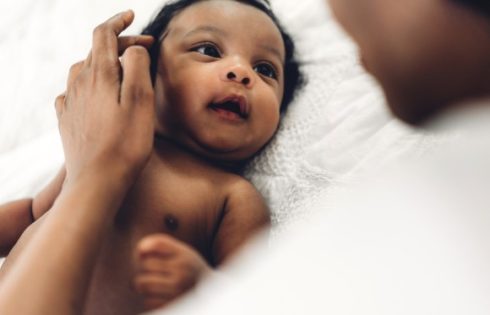
Applied policy to him that didn’t exist at the time
The Obama administration warned colleges against cross-examining students who claim they were victims of sexual misconduct, but judges who hear the lawsuits of accused students don’t seem to agree.
A Los Angeles Superior Court judge told Pomona College it deprived an accused student of a “fair hearing” by finding him responsible with no opportunity to submit questions to his accuser, and ordered it to remove his two-semester suspension.
“Jane Roe,” a student at fellow Claremont Consortium institution Pitzer College, had claimed that “John Doe” digitally penetrated her without her consent after several days of flirting in March 2015.
She had smoked marijuana and drank a beer at the party where they met before the incident, but Judge Mary Strobel’s ruling does not mention Roe claiming she was incapacitated, except to note that she was “unsure of how they got” to his bed.
Roe claimed to remember the rest of the encounter in detail, including that she “kissed John Doe back” because she didn’t know how to respond to his unwanted groping. Asked earlier by a friend via text whether she really wanted to go back to Pomona with Doe, Roe responded “Yea I’ll be fine” and suggested a meetup after the liaison.
Doe denied he had tried to remove Roe’s underwear, claiming she was wearing a swimsuit; he said it was Roe who directed his hand to her crotch without his consent (he later filed his own complaint against her).
Roe’s shifting story about her response to Doe’s alleged behavior – from freezing up to actively resisting – would later become crucial in the judge’s ruling.
Strobel notes that Pomona applied a brand-new sexual misconduct policy to Doe that was “still in the process of being reviewed” a month after Roe formally accused Doe, which was itself eight months after their disputed encounter.
The college did not tell Doe that the new policy would apply to his case. It interviewed about 20 witnesses before Title IX Coordinator Daren Mooko formally charged Doe with nonconsensual digital penetration, explicitly telling him the “definitions of sexual misconduct” from March 2015 would apply, but investigator Li Fellers later said that Mooko directed her to use the new policy.
At the adjudication hearing where Roe was a no-show, the “external adjudicator,” Joseph Costa, found Doe responsible under the new policy.
But he said Roe had communicated that Doe “may not have been aware that the Incident was not consensual” – suggesting Roe did not give him a clear refusal of consent. Costa also said Doe was “earnest” in his belief that it was consensual.
.@pomonacollege in 68th decision since Dear Colleague letter w/college on losing side. Ruling seems to confirm @JerryBrownGov concerns.
— KC Johnson (@kcjohnson9) October 18, 2017
School invented procedure to accommodate accuser
Judge Strobel was largely not friendly to Doe’s case against Pomona.
She said Roe’s statements were mostly consistent with her behavior and backed by interviews with her friends, and noted that Pomona policy frowns upon assuming that consent for one activity (“such as kissing”) creates consent for another (“such as vaginal penetration”).
But the judge cited a recent ruling by the California Court of Appeals that laid out a test for when accused students must be afforded the right to cross-examine their accusers, if only indirectly: when findings are “likely to turn on the credibility” of the accuser, and the accused “faces very severe consequences” for violation.
Four days before the hearing where Roe didn’t show up, Doe was “still preparing questions” for her and requesting certain witnesses to testify. His request to Costa to overturn Mooko’s “determination” also mentioned questions he wanted asked.
Costa explicitly told Doe at the hearing that he had the right to submit written questions to Roe: “That would have had to have been done in advance. If she was here, I – you know, it would be a different story.”
The college told Roe she could submit answers to any questions from Doe in writing – an option that was not laid out in either the policy in place during the sexual encounter or the 2016 policy used to judge Doe. It was also not explained to Doe as an option, Strobel says:
The record reflects that Doe was first told that Jane Roe would not be participating in the hearing on May 16, 2016, two days before the scheduled hearing. …
Under the circumstances here, including Roe’s failure to attend the hearing, and the External Adjudicator’s decision not to pursue the additional steps requested by Doe, including questions to be asked of Roe, Petitioner did not have any opportunity to question Roe directly or indirectly. This raises serious fairness questions.
‘An explanation from [the investigator] is not the same as an explanation from Roe’
Pomona claims that Doe’s submitted question for Roe – about when she changed her story from “no discussion of consent” to active resistance and saying “no” to him – was answered by Fellers, the investigator, so it didn’t need to be asked of her.
Judge Strobel dryly observes: “An explanation from Fellers is not the same as an explanation from Roe.”
Though Doe brought up this discrepancy in Roe’s story at the hearing, Costa never even addressed it, and his finding against Doe suggests that Costa was responding to Roe’s initial story about being frozen and unable to respond to Doe’s advances, Strobel says. (Roe claimed she has post-traumatic stress disorder from two previous assaults).
In addition to inventing a procedure for Roe (written answers), Costa also never fulfilled his responsibility to evaluate whether Doe’s submitted questions were “appropriate,” Strobel says:
It is entirely unclear whether [Costa] would have made the same credibility determinations had Roe been questioned. The court finds that cumulatively, these conditions were prejudicial to Petitioner and denied him a fair hearing.
Given that accuser had mutually contradictory versions re consent, judge concludes that denial of any x-examination prejudicial to accused. pic.twitter.com/4mJFU6CrSW
— KC Johnson (@kcjohnson9) October 18, 2017
MORE: California governor vetoes anti-due process bill
IMAGE: ImageFlow/Shutterstock
Like The College Fix on Facebook / Follow us on Twitter






Please join the conversation about our stories on Facebook, Twitter, Instagram, Reddit, MeWe, Rumble, Gab, Minds and Gettr.